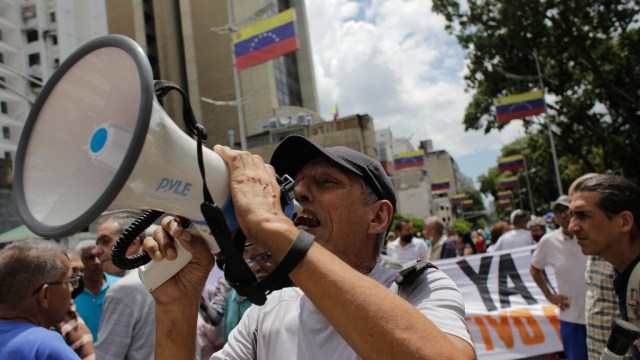
Venezuela’s intelligence agencies are committing crimes against humanity as part of a plan orchestrated by the Nicolás maduro regime to repress dissent, warns a mid-September United Nations (U.N.) report. The repression is carried out “including through the commission of extremely grave acts of torture,” the U.N. Independent International Fact-Finding Mission on the Bolivarian Republic of Venezuela (FFMV) report indicates.
By Dialogo Américas
Nov 07, 2022
According to Marta Valiñas, president of the U.N. Fact-Finding Mission, investigations show that the Venezuelan regime relies on intelligence services and its agents to repress dissent in the country. “In doing so, grave crimes and human rights violations are being committed, including acts of torture and sexual violence,” Valiñas said in a statement. “These practices must stop immediately, and the individuals responsible must be investigated and prosecuted in accordance with the law.”
Silencing dissent
In the report, Calculated Repression: Stigmatization and Arbitrary Detention for Political Reasons in Venezuela, nongovernmental organization (NGO) Amnesty International highlighted the systematic and widespread excessive use of force and torture in the South American country that amount to crimes against humanity.
“For years, Amnesty International has documented and denounced the policy of repression,” the NGO says, adding that the Maduro regime has “consolidated a narrative in which criticism of public policies or any action that is perceived as contrary is rejected, censored, and attacked.”
“Iranization of the regime”
“All the reports, both from the U.N. and other agencies, confirm the terrible repression in Venezuela,” Luis Fleischman, sociology and political science professor at Palm Beach State University in Florida, told Diálogo. “It’s the ‘Cubanization’ and ‘Iranization’ of the regime, where the opposition has been killed and tortured and the population is kept under maximum surveillance,” Fleischman said.
In a previous report, FFMV addressed the situation in Bolívar state, where members of the regime and non-state actors committed a series of violations and crimes against local populations in gold mining areas. The U.N. Mission based the findings of both reports on 245 confidential interviews with victims, their relatives, and former security and intelligence officials.
“The interviews were conducted both in person and remotely, through secure telephone or video connections,” FFMV said. Experts also analyzed court records and other documents related to the incidents. “The Mission visited areas close to the country’s borders, due to the fact that since its establishment in 2019 it continues to be unable to access Venezuelan territory,” FFMV said.
SEBIN and DGCIM
The recent U.N. report delves into the findings that the Mission exposed in 2020 – the actions of the Military Counterintelligence General Directorate (DGCIM) and the Bolivarian National Intelligence Service (SEBIN) – this time focusing on the roles of the individuals at different levels in the chain of command in both agencies.
“In the case of SEBIN, the report points to the current director general, Gustavo Enrique González; the director of the Helicoide [the main detention center] between 2014 and 2018, Carlos Alberto Calderón; and his number two at the time, Ronny González, as responsible,” German news site Deutsche Welle (DW) reported.
“In the DGCIM, Director General Iván Rafael Hernández is mentioned, as well as former heads of different strata of the agency: Rafael Antonio Franco, Hannover Esteban Guerrero, and Alexander Enrique Granko,” the DW reported.
Help from the United States
On September 22, the United States, through the U.S. Agency for International Development (USAID), announced nearly $376 million in additional humanitarian assistance for people affected by the Venezuela regional crisis. “The humanitarian toll from this political and economic crisis in Venezuela remains dire,” USAID said in a statement.
“More than 7.7 million people in Venezuela need immediate humanitarian assistance and more than 6.8 million Venezuelans have fled their home country in search of better opportunities and livelihoods, resulting in one of the largest migrant and refugee crises in the world,” USAID added.
…
Read More: Dialogo Américas – Venezuelan Intelligence Agencies Guilty of Crimes Against Humanity, UN Report Says
…